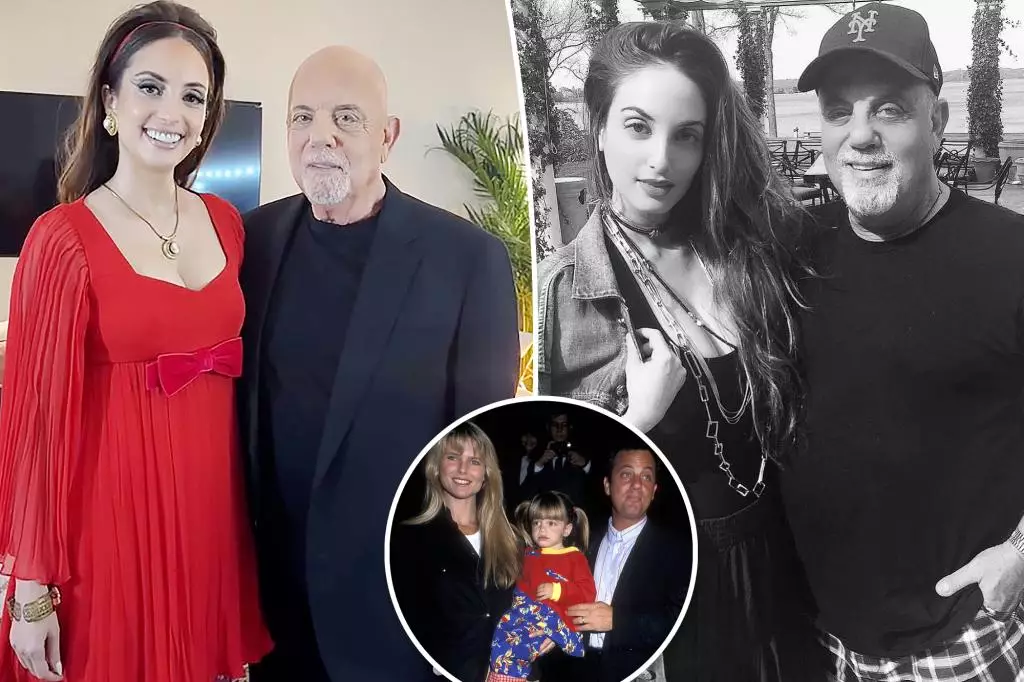The recent health struggles of musical icon Billy Joel have prompted heartfelt expressions of support from family and fans alike. His daughter, Alexa Ray Joel, captured the essence of this emotional journey in a poignant Instagram post. She highlighted not only her father’s impressive resilience but also the importance of community and connection during difficult times. In an age where mental health is frequently discussed, her messages emphasize solidarity within families while facing the complexities of life-threatening conditions.
Alexa referred to her father as the “strongest and most resilient man” she knows. Such words resonate heavily when considering the daunting diagnosis of normal pressure hydrocephalus (NPH), a rare condition that could alter one’s quality of life significantly. The depth of her admiration and love is evident; she doesn’t just celebrate his past successes as a legendary musician, but also his ongoing fight against adversity. Her expression, “We love you and we got you, Pop!” speaks volumes about the unsteady ground that illness creates, and the unwavering support that family can provide.
Empathy Beyond Blood: The Brinkley Family’s Unified Front
Additionally, the support was echoed by Joel’s ex-wife, Christie Brinkley, showcasing the power of empathy that transcends the closure of personal romantic relationships. Brinkley’s public proclamation of love emphasizes the familial bonds that can endure even in separation. By reaching out to Billy with affectionate words and urging him to take care of his health, she reminds everyone that genuine concern knows no boundaries. This is heartwarming, particularly given the sometimes tumultuous dynamics between ex-spouses.
The collective support from both Brinkley and Alexa creates an illustration of what it means to navigate through the trials of health as a family unit. It transforms the narrative surrounding illness from a solitary battle into a shared journey, suggesting that healing isn’t just a personal endeavor but also a community effort.
The Heavy Toll of NPH: A Candid Diagnosis
Billy Joel’s struggle with NPH isn’t merely a personal issue; it’s a pressing reflection of how we confront health in the public eye. As fans, it can be challenging to reconcile the rockstar persona, dancing through the brightness of stages and fanfare, with the intimate reality of health complications. The revelation of NPH adds layers of complexity to his legacy; it serves as a reminder that even those who seem invincible have vulnerabilities.
NPH is a condition characterized by the buildup of cerebrospinal fluid in the brain, often misdiagnosed due to its symptoms closely resembling those of degenerative diseases like Alzheimer’s and Parkinson’s. This condition, particularly troubling for older adults, required Joel to regretfully cancel tour dates—not a decision that any artist takes lightly, as it disrupts the lifeblood of their existence. It’s striking to hear him candidly address the realities of hearing, vision, and balance issues aggravated by performance, weaving personal health struggles into his artistic narrative.
Reflections on Music and Healing
Despite these adversities, the spirit of music and its therapeutic abilities shine through his messages. The mention of physical therapy as a vital part of his recovery highlights the importance of rehabilitation but signals a plea for patience and understanding from his audience. This connection between health and creativity—between resilience and artistry—prompts a broader discussion on how artists can transform personal pain into collective healing. Billy Joel’s own lyrics in “Lullabye (Goodnight My Angel)” evoke the timeless nature of love, suggesting that even in illness, the bond between father and daughter remains vibrant and alive.
Furthermore, Joel’s decision to prioritize health over public performance argues boldly for a societal shift that values well-being above all else, particularly in high-stakes industries like entertainment. Amid the bright lights and smoky stages, the importance of self-care becomes the night’s unsung anthem, a theme that resonates deeply in times of crisis.
In the end, Billy Joel’s journey through this health scare promises to be as compelling as any song he’s ever penned. It’s filled with love, vulnerability, and an unwavering commitment to life’s rhythm, offering fans a chance not just to support a beloved icon but to reflect on the greater nuances of health, family, and unconditional love.

